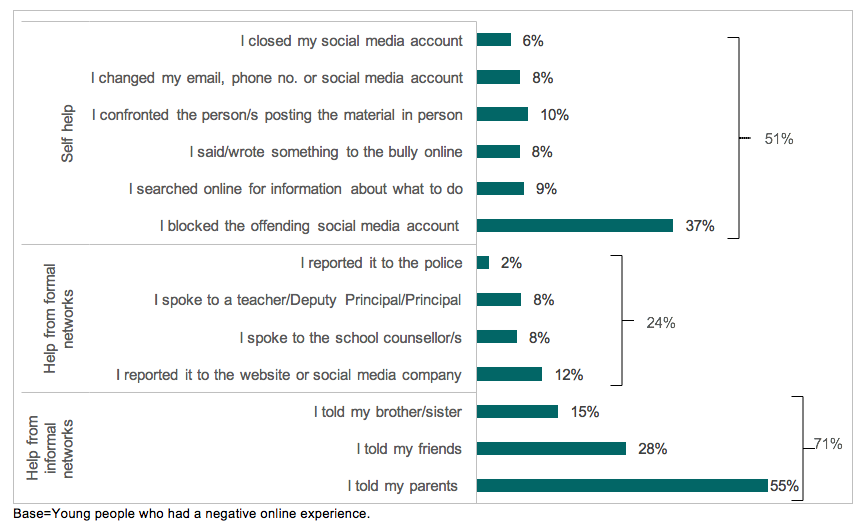Please look at this list of reasons why 17% of Aussie kids (aged eight to 17) shared their email or social media account passwords last year.
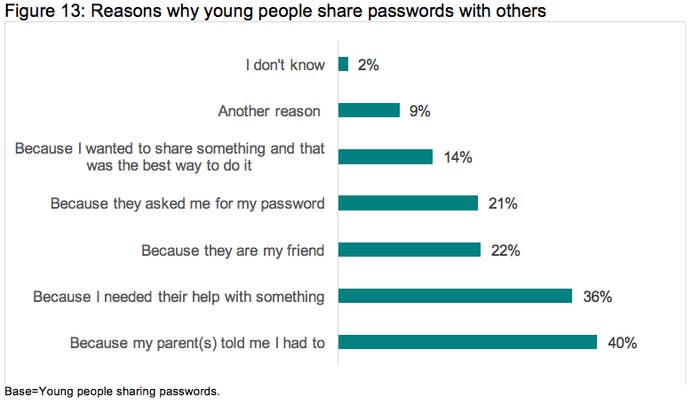
Australia's Office of the eSafety Commissioner interviewed more than 3,000 young people aged eight to 17 about their online behaviour in the year to June 2017 for the State of play — youth, kids and digital dangers report.
The report refers to a United States 2016 study that found password sharing is perceived by teens as one of the riskiest online behaviours. Despite this Aussie kids and teens are handing their passwords out to not only their parents but their brothers, sisters and friends.
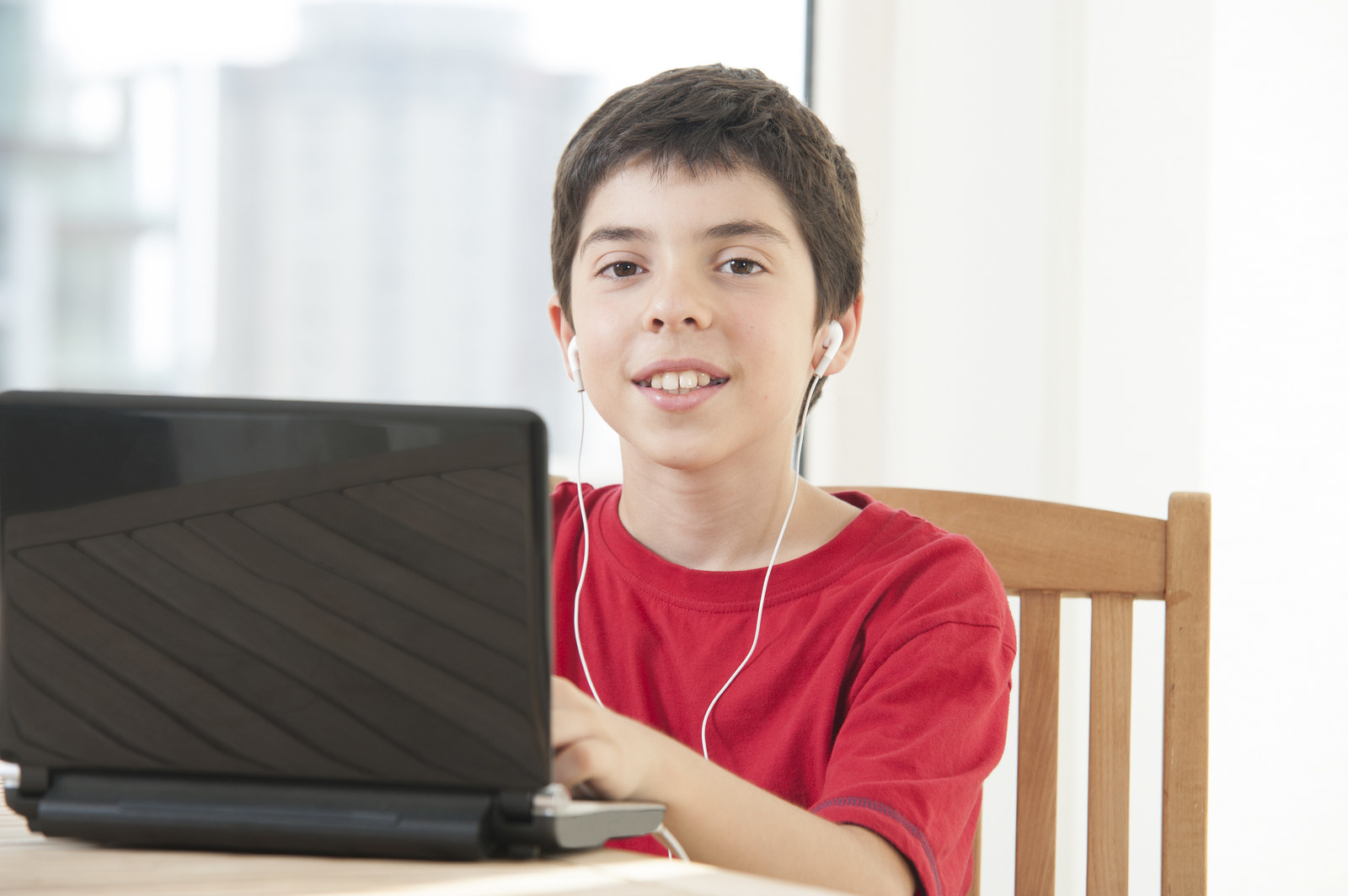
The good news is that 68% of young people who use social media in Australia had tried to actively manage their online privacy through privacy settings in that 12-month period, and they seemed to become more vigilant with this as they aged.
Kids (aged eight to 12) were significantly less likely than teens to undertake a number of tasks in order to stay safe online, including blocking people (28% of kids versus 64% of teenagers).
Girls were less likely to share passwords with
their parents but significantly more likely than boys to share their passwords with a friend.
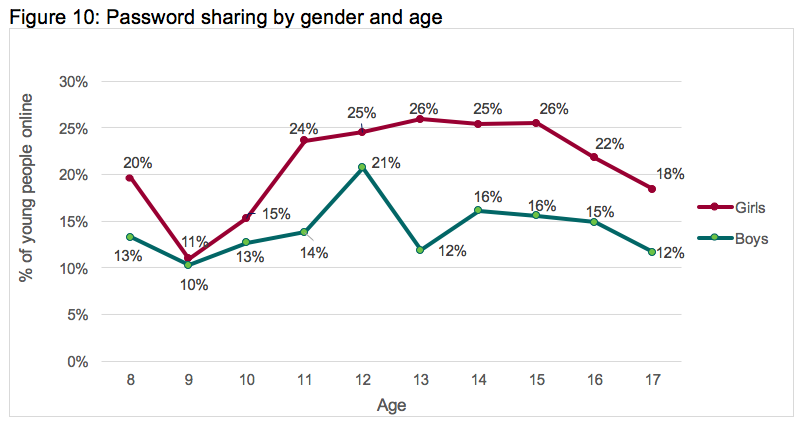
Around 60% of girls shared their passwords with their parents compared to 71% of boys.
The report also looked into negative experiences online and found one in four kids were being stalked, harassed and/or abused online — 25% had received unwanted contact from strangers online in the 12-month period.
In news that will surprise precisely no-one, young people are using the internet to exclude and bully each other.

In the year measured, 20% of young people had behaved negatively towards others online, with the range of behaviours including calling someone names, deliberately excluding people and/or spreading lies or rumours.
Young social media users encounter a variety of negative experiences online including: being contacted by strangers/someone they did not know (25%), being left out by others (21%), having mean things said about them/called names (19%), receiving repeated unwanted online messages from someone (13%), and having lies/rumours spread about them (13%).
Thirty-eight per cent of young people surveyed had used the internet to talk or chat to someone that they did not previously know. Boys were significantly more likely to engage in this type of behaviour than girls.
Girls experienced higher rates of social exclusion, damage to reputation, unwanted contact threats and abuse, but boys were more likely to report fraud and viruses.
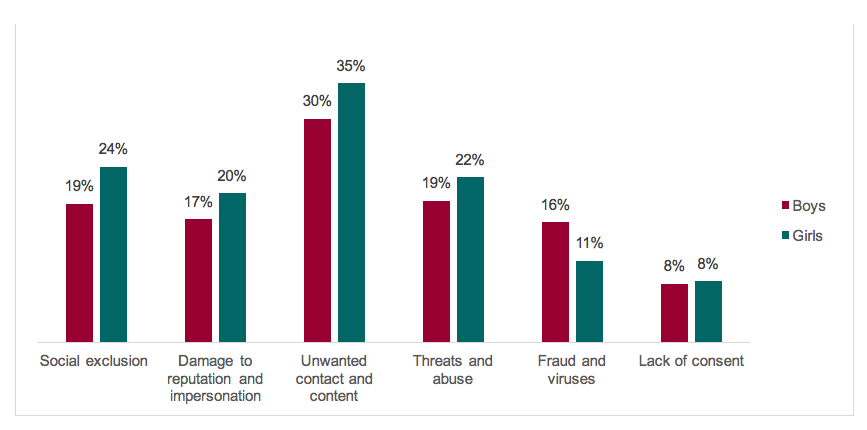
Overall, only about a quarter of young people who experienced something negative online sought help in a formal way through their school, a social media company or the police.
Around 71% sought help from informal support networks like their families and friends, and around half (51%) attempted self-help strategies that included making changes to their social media presence.
